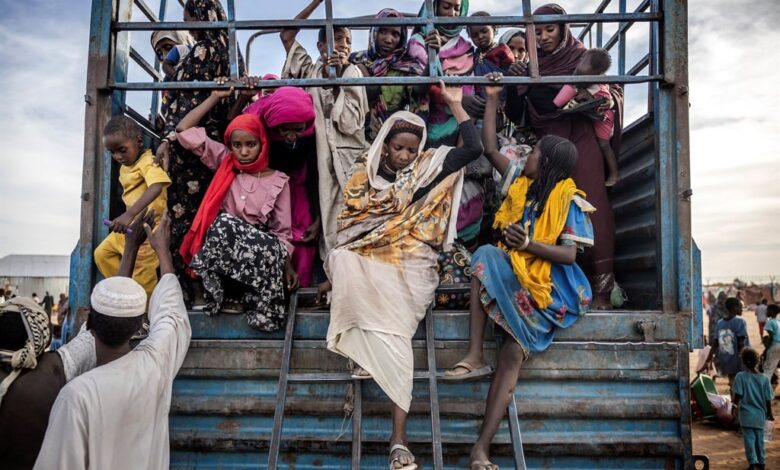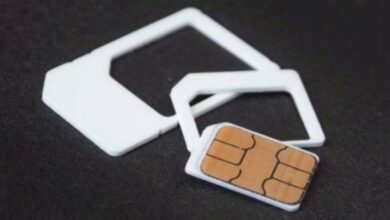Aid agencies in war-torn Sudan plead for an alternative to weapons-guiding Starlink

Sudanese refugees get off a truck in Renk, on 13 February 13 2024. More than 550 000 people have fled from the war in Sudan to South Sudan since the conflict exploded in April 2023, according to the United Nations. (Luis Tato /AFP)
- Poor telecommunications is affecting both aid workers and citizens.
- With Starlink due to cut its services, aid agencies are looking to the United Nations for a solution.
- Although crucial for ordinary people’s survival, Starlink is a double-edged sword.
Civil society organisations operating in Sudan are urgently looking for an alternative to Elon Musk’s Starlink before it cuts off service, because makeshift, unregulated internet cafes, using it as a backbone, is one of the few ways to communicate.
Starlink terminals enter the country illegally via Libya, South Sudan and Eritrea to provide much-needed connectivity in one of the world’s worst displacement crises, which seems due to set new records as the worst hunger crisis in modern history as the civil war rages on.
In February alone, an estimated 30 million locals were cut off from the internet and telecommunications.
In April, SpaceX said it would stop providing service in Sudan.
Now, civil society groups are urging the United Nations, through the Emergency Telecommunications Cluster, to urgently increase emergency telecommunication capacity in Sudan.
Civilians use the internet to get cash and bank transfers – often from relatives living abroad – which have been a lifeline for many, allowing them to buy essentials like food and water.
The internet has also helped citizens exchange crucial, often life-saving, information, such as safe regions and routes.
READ | War-torn Yemen nears licensing deal with Musk’s Starlink
The main telecommunications companies operating in Sudan are Zain, MTN and Sudani, but its services are hugely limited since the start of the civil war.
“In areas where formal telecommunication is barely functioning, civilians and local responders, such as Emergency Response Rooms, often connect through informal Starlink internet cafes.
“Indiscriminate attacks and disruption of telecommunications by warring parties have severely affected civilians’ ability to cope with the effects of the war, as well as aid workers’ capacity to deliver essential services, with local responders most severely impacted,” civil society organisations operating in and around Sudan said in a statement.
Although crucial for ordinary people’s survival, Starlink is a double-edged sword.
ALSO READ | Elon Musk’s Starlink black-market trade is growing fast – also in South Africa
Rival forces aligned to the de facto head of state, General Abdel Fattah al-Burhan, known as the Sudanese Armed Forces, and the Mohamed Hamdan Dagalo-led Rapid Support Forces (RSF), both apparently use Starlink technology in their fight.
Starlink terminals are now deployed throughout all active battlefronts, and unconfirmed images show RSF vehicles with mounted Starlink terminals.
Starlink connections are reportedly used in everything, from coordinating artillery strikes to steering drones with explosive payloads.
The News24 Africa Desk is supported by the Hanns Seidel Foundation. The stories produced through the Africa Desk and the opinions and statements that may be contained herein do not reflect those of the Hanns Seidel Foundation.



